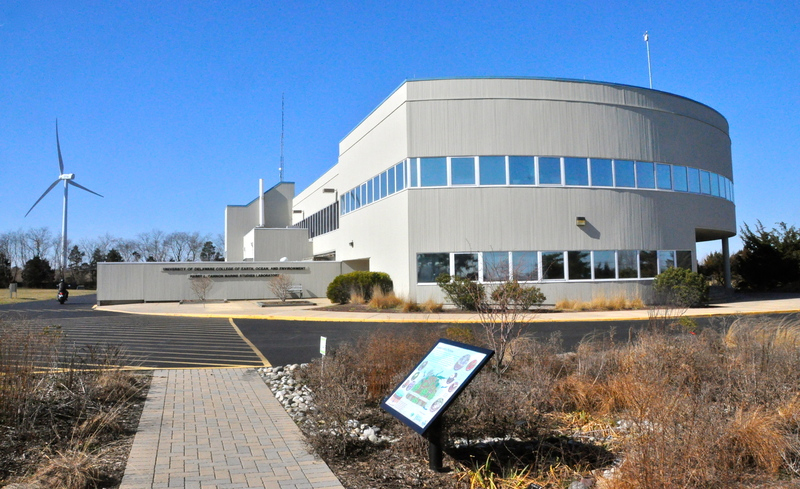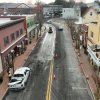The University of Delaware is offering free, guided tours of its marine research complex on the Hugh R. Sharp Campus in Lewes this summer at 10 a.m., every Monday, Wednesday and Friday in July and August.
Experienced docents guide visitors through Smith Lab and the newly renovated Cannon Lab, providing an insider view of campus research facilities and an opportunity to learn about ongoing research in the university's College of Earth, Ocean and Environment, covering topics like marine plastics, wind power, coral reefs, sturgeon and more. During the tour, docents tell visitors how the college researchers have studied penguins in Antarctica, describe how scientists and students visit the sea floor in a specialized research submarine, and share the important support their findings provide other universities and many government agencies through its research vessel, the Hugh R. Sharp.
On one stop of the tour, nine contiguous television screens in the Global Visualization Lab display a multicolored view of the Earth, exhibiting changing ocean temperatures worldwide. Then, with the click of a mouse, the screen zooms in on North America, the United States, Delaware and finally, the coast of Lewes itself.
Researchers utilize the technology to study environments and marine life in real time, using Google Earth to combine data from satellites, autonomous underwater vehicles and other sources stationed all over the world. They can track tagged wildlife, read ocean conditions as they happen and locate research vessels, among other things, making the lab an important global and local research tool.
Each year, docents meet with researchers to learn about different projects going on in the college and within the Delaware Sea Grant college program; then they tailor the tours based on visitors' interests. Visitors can learn about the university's Robotic Discovery Laboratories which house gliders, aerial vehicles, autonomous kayaks and other advanced robots used for environmental exploration. Docents will describe the cutting-edge robotics that college researchers use to map shark habitats, study Arctic environments and discover lost World War II planes in the Pacific Ocean, among other studies.
Other popular stops on the tour include a display of preserved sea creatures, where visitors can come face-to-face with a tiny angler fish from the depths of the ocean, and an elaborate mural of ocean topography that displays marine environments from the surface down to trenches and hydrothermal vents.
From the campus, visitors also can see the Lewes turbine in action and learn about wind power. The turbine represents the important future of wind power capacity - it generates enough power to supply the campus labs and facilities, and it still contributes to the local electrical grid.
Tours typically last about two hours and are suited for ages 10 and up. Reservations are required at least 24 hours in advance. To schedule a visitor tour, contact Lisa Dorey at ceoe-tours@udel.edu or 302-645-4234.




















































